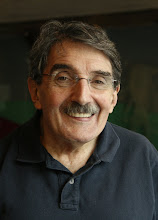Beer
I was waiting for Rudolph Schaffer.
He had recently just taken the reins of his father’s and grandfather’s F.& M. Schaffer brewing company, which in 1973 was on Kent Avenue, in Brooklyn, New York, where it had been for quite some time.
I was writing a story about beer. Me. It was to be called, “Beer, I Love You.”
(I kid you not. This has always been the best job.).
I still couldn’t believe my luck, in choosing this second profession, in the hope of forging my way through this life without performing anything like work. I was, maybe, 26, and had been writing newspaper stories for three years, ever since I had left teaching, which I also loved.
The problem with teaching was that it required starting all over with the same stuff every year, for 30 or so years. That frightened me. What if, after the 17th year, I was bored?
Reporting introduced you to a new skill every week, and you didn’t have to learn it, just learn enough to get somebody else to explain it.
It made me giddy to think that I was getting paid to write about beer.
It already had gone around the office that I loved beer. So, what did they do but assign a reporter who loved beer to write about beer. It was unheard of, this journalism; exactly the opposite of what my father told me the Army would do. The Army would assign a guy who loved beer a job where he blew up breweries. The guy would go to his bunk each night in tears. .
At an editor’s urging (Think of it; at an editor’s urging!), I already had interviewed Ivo Havlacek, the fifth Havlacek to preside over the brewery in Pilzn, Czechoslovakia, where they made a beer called Pilsner Urquell (in American), or, loosely translated, “Pilzn from the original source.” It was the acknowledged, “King of Beers,” the finest beer in the world, the finest beer in history, the first laagered beer, golden beer.
When The Kremlin rolled tanks all over Czechoslovakia, the communist government had approached Ivo’s father, Ivo, and said, “You will make more Pilzn beer!” I guess they thought Ivo’s father would snap to it.
“Not so fast!” said Ivo’s father, instantly making himself a National Hero.
(I love this story. Ivo Jr. told me it, through a Russian interpreter, no less, on a marketing visit to The States.).
“What?” the Kremlin guys said.
Ivo’s father said: “The law of this land, going back to 1292, through all the political upheavals, says Pilzn beer has to be aged in limestone caves. Any brewmeister who violates that rule is to be tarred and feathered and run out of Pilzn, by Bavarian law, whatever the ruling country is. There are 22 miles of limestone caves under Pilzn. You want more beer, you find more limestone caves.”
Whoa. The guys from the Kremlin did not know what to do. But they had to do something, or they would lose face. They decided to market Pilzn beer in the United States, where it had been banned since the first World War. They would take it out of…some other country.
Meanwhile, I had to interview an American brewmeister to balance the Ivo Havlacek interview.
The closet beer brewer was Rudy Schaffer. I was to interview him, to ask him questions about his life, his business, the product, the family, the problems, the market, the past, the future; virtually anything and everything I could think of that satisfied my curiosity. Or, that satisfied the curiosity of persons who picked up a copy of Newsday and paged through it until their eyes landed on a full-page glass of beer with the words, ‘Beer, I Love You,” superimposed on it.
The interview went well enough. We went through the brewing process, saw single-file lines of 12 oz. bottles marched through the bottling process, with a bottle every so often rejected by a magical electrical eye that determined whether the bottle was too filled or not filled enough. It was fun.
I had forgotten that I was accompanied by a Newsday photographer, John Cornell. He saw this happen.
A stainless steel beer tap was mounted on the wall in Rudy’s office, next to the, “Stein Room,” where the Schaffer’s entertained brewmeisters and company executives from all over the world. It looked out of place, with the ancient table and the chairs carved by hand by coopers centuries ago.
I wanted to get Rudy Schaffer to say something about, “cleaning the coils,” from the barrels to the tap. Some saloon owners needed to know why I evaded their establishments. I brought up the subject, and the normally calm, business-like, Rudy Schaffer lit up into the likes of a raging bear.
“Do you know where that beer comes from?” he asked, not waiting for an answer. “The Barrel room, below here, where somebody taps a barrel from one of hundreds of barrels. Do you know what beer company executives say about that, ‘ordinary’ Schaffer beer?”
(I didn’t say a word.).
“They say, ‘Wow, Rudy. This is the best beer! What do you do, save it for private use?’
“It’s Schaffer beer, poured through a clean tap.”
“Really. Right out of that tap, there,” I said, not wanting to suggest anything. Aw, maybe.
“Yes. I cannot emphasize enough the importance of a clean system.”
“Brewmeisters from all over the world say that beer right out of that very tap, is the best they ever…”
“Yes. And it’s regular Schaffer beer.”
“Really. Wow. Right out of that tap, there…”
I saw Cornell out of the corner of my eye.
“Yep, right out of that tap.”
I gave it up. I never tasted the beer. I wrote the story, Schaffer moved to the LeHigh Valley, the beer changed, and I was uncorrupted, but not exactly by choice.
Sunday, May 23, 2010
Subscribe to:
Post Comments (Atom)

No comments:
Post a Comment